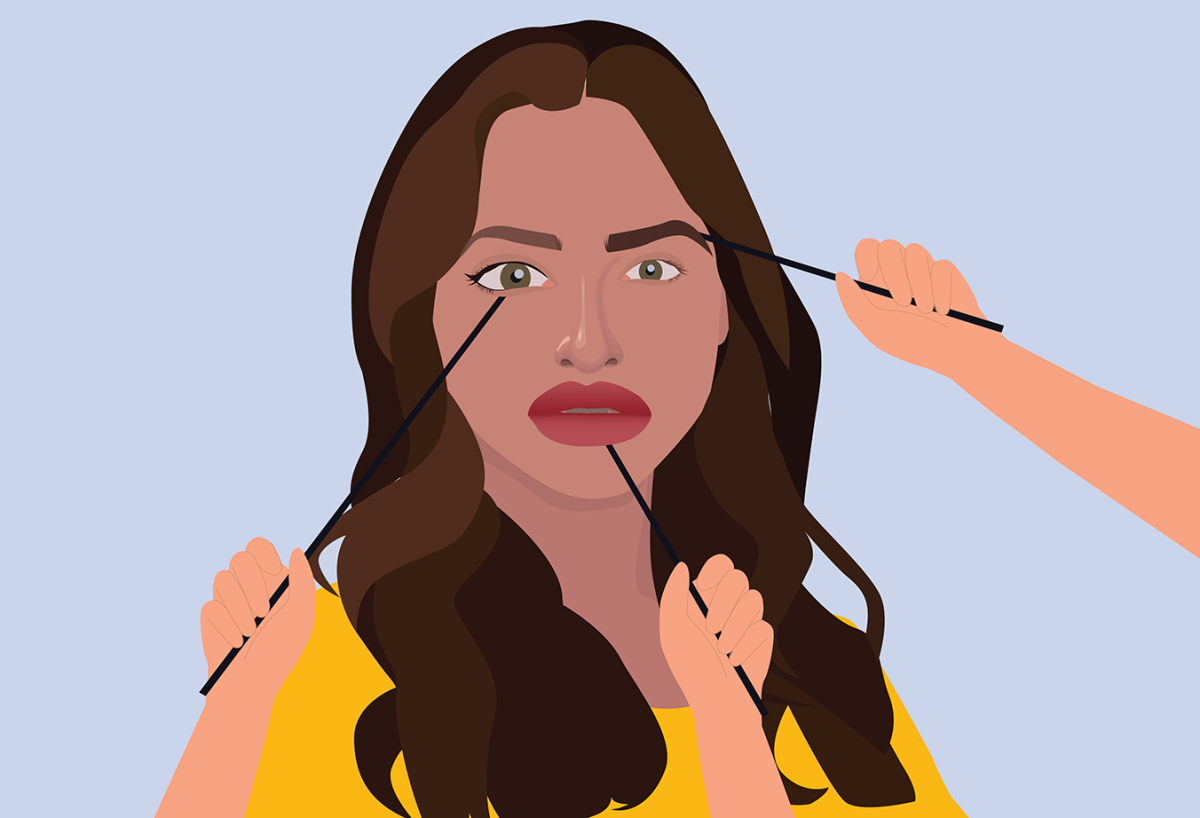It’s no secret that makeup makes people feel pretty.
After all, the beauty industry brought in an estimated $528.59 billion in revenue in 2022, according to Statista. Additionally, most girls I know, including me, feel better when wearing mascara or using concealer to cover blemishes.
As part of a longer ongoing feminist movement, many girls are embracing these acts of femininity as characteristic of “girlhood,” or justifying their makeup use as a form of self-confidence or self-expression.
Despite this reclamation of makeup use, I think it’s important to examine the reasons as to why we feel better enhancing our natural features with these products and how the validation we receive while wearing them impacts our day-to-day beauty and hygiene habits.
Of course, I do truly think that most women who say that they wear these products for their own satisfaction do believe this, but the reasons for which we feel the need to modify ourselves daily is the problem with simply claiming doing so is for “confidence.”
Biologically speaking, there is some evidence that applying and wearing makeup can make people feel better about themselves.
A 2008 NIH study looked into the psychological foundation as to why so many women feel more “beautiful” wearing makeup. The study found that wearing makeup stimulates three of the five senses: touch, smell and sight. The effects of stimulation from applying makeup often induces sensory and psychological pleasure, which can lead many to gain a greater appreciation for wearing these products.
Other, more sociology-based research has suggested a mix of reasons as to why so many women feel the need to wear makeup, despite most men reporting that they prefer “natural” women.
This feeds into the idea of the “natural” woman — that women should wear makeup only to “enhance” features, or not wear any at all, rather than using full-coverage makeup or colorful makeup that “distorts” the face or “deceives” men in some way.
However, women who wear makeup are often deemed as more “attractive,” and studies have shown that “attractive” people earn around 20% more than “average” people in the workplace.
Relatedly, a New York Times study found that women interviewing for jobs were seen as more “competent” if they wore makeup, showing that women who participate in beauty trends are financially and socially rewarded.
Societally speaking, many women also use makeup or other skincare and beauty products to look and feel younger than they are. This can be seen in modern Tik Tok discourse about women’s skincare routines and can even partially explain why so many pre-pubescent girls feel the need to shop at Sephora and use expensive skincare like Drunk Elephant to not only fit in but also begin this anti-aging, “glass skin” routine at an absurdly early age.
Celebrity culture has also highlighted these ideals. Women in the public eye are almost never seen without makeup or some kind of beauty enhancer, and if they are, it’s often done intentionally to make some sort of statement.
The most prominent example that comes to mind for me is Alicia Keys, who stopped wearing makeup in 2016 to embrace her flaws. She also went on record to say she was “addicted” to makeup, and often didn’t feel “comfortable” without it.
I think this is a very common feeling amongst women of all ages. Getting used to seeing your face in an “enhanced” state can have an impact on your mental health that can last a lifetime.
All of this is to say that women are in a lose-lose scenario — they are judged if they wear makeup, but they are also negatively impacted, societally, economically or mentally if they do not.
Obviously, makeup isn’t going anywhere. I myself am wearing it as I’m typing this opinion piece. However, examining the implications of wearing makeup, mentally and sociologically can help us foster better relationships with beauty and with ourselves.
























































































































































